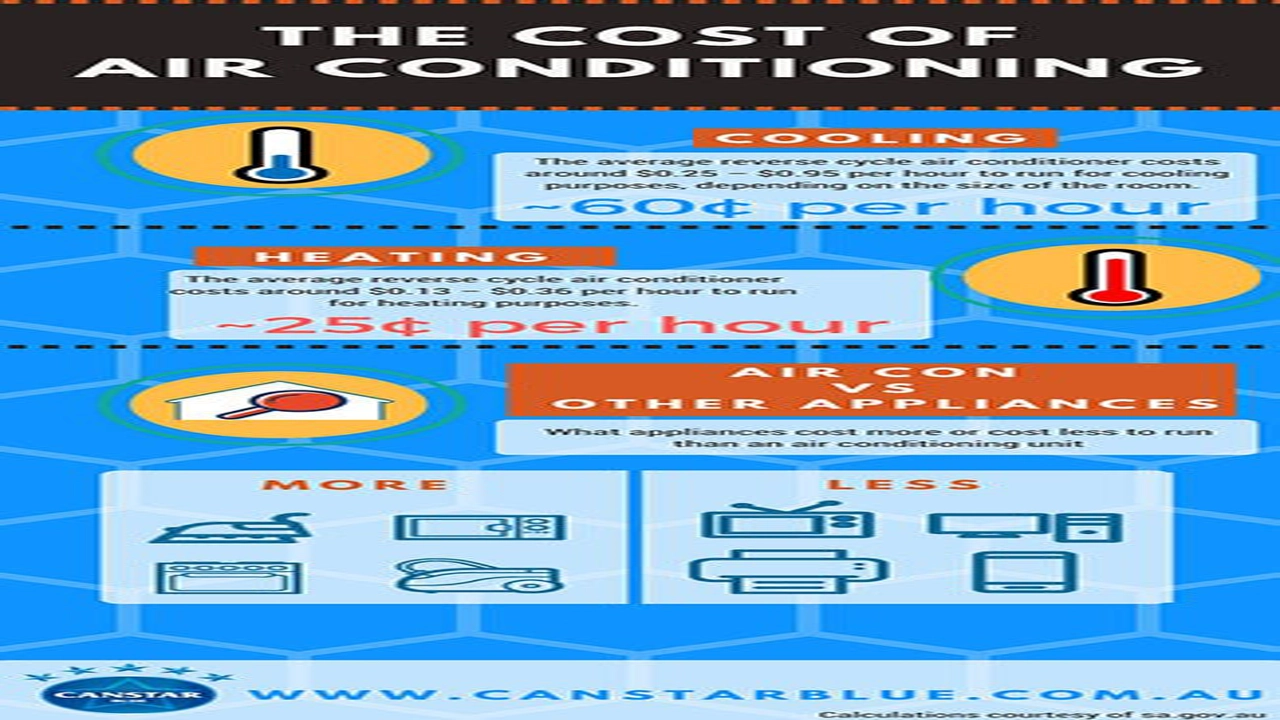How much does AC cost per month?
The cost of running an air conditioner each month depends on several factors. These include the size of your home, the age and efficiency of your AC unit, the climate you live in, and your usage habits.
To estimate your monthly AC costs, you can use an online calculator or consult with a local HVAC professional. They can help you determine the right size AC unit for your home and offer tips for maximizing energy efficiency.
ac cost per month the shocking truth

Figuring Out Your AC Costs: A Breakdown of Factors
Summer heat is here, and it’s time to crank up the AC. But before you do, you might be wondering: how much does AC cost per month? The answer isn’t simple – it depends on a lot of factors.
Let’s dive into the details and help you understand what influences your monthly AC bill.
What Drives Up Your AC Costs?
- Your Home’s Size: A bigger house naturally requires more energy to cool.
- Your AC Unit’s Efficiency: Older, less efficient AC units will consume more power than newer models.
- The Size of Your AC Unit: If your AC is too small, it will work harder to cool your home, leading to higher energy bills.
- Your Thermostat Setting: The cooler you set your thermostat, the more your AC will run, increasing your energy consumption.
- Window Insulation: Poorly insulated windows can let hot air in, forcing your AC to work overtime.
- Your Home’s Insulation: Adequate insulation helps keep cool air inside and hot air out, reducing your cooling needs.
- Sunlight Exposure: Rooms with lots of direct sunlight will heat up faster, requiring more AC use.
- The Number of People in Your Home: More people create more heat, meaning more AC usage.
- Outdoor Temperature: Obviously, hotter outdoor temperatures require your AC to work harder.
- Your Local Utility Rates: The price of electricity in your area impacts your overall AC bill.
How to Find Your AC Cost per Month:
You can use a few methods to get a rough estimate of your AC cost per month.
- Energy Audit: A professional energy audit can pinpoint areas where your home is losing cool air and recommend solutions.
- Online Calculators: Many websites offer free AC cost calculators that use factors like your home’s size, your AC unit’s efficiency, and your local electricity rates.
- Energy Bills: Review your past energy bills to get an idea of your average monthly AC costs during the summer. Look at the difference between your summer bills and your winter bills to see how much more you spend on cooling.
Tips for Saving Money on Your AC Bills:
- Set Your Thermostat Higher: Even a few degrees can make a difference. Aim for 78°F (25°C) or higher when you’re home and 85°F (29°C) or higher when you’re out.
- Use Ceiling Fans: Circulating air can make a room feel cooler without needing to use your AC as much.
- Close Blinds and Curtains: Keep direct sunlight out of your home to reduce heat gain.
- Seal Air Leaks: Check your windows and doors for drafts, and seal any leaks with weather stripping or caulk.
- Plant Trees: Shading your home with trees can significantly reduce the amount of heat absorbed.
- Upgrade Your AC Filter: A clean filter helps your AC run more efficiently.
- Get Your AC System Serviced: Regular maintenance helps ensure your AC is running at peak performance.
Making the Most of Your Energy Bill:
It’s also a good idea to understand how your energy company bills you.
- Time-of-Use (TOU) Rates: Some utilities charge different rates for electricity depending on the time of day. If you have TOU rates, try to use your AC during off-peak hours (usually overnight) to save money.
- Demand Charges: Some utilities also have demand charges, which means you pay more if you use a lot of electricity at once. If you have demand charges, try to spread out your AC use throughout the day to avoid peak demand periods.
Looking at the Bigger Picture:
How much does AC cost per month? This is a question many homeowners ask themselves as temperatures rise. While it’s impossible to give you an exact figure, you can estimate your costs based on the factors outlined above.
Beyond those individual factors, remember that your energy consumption habits play a large role in your monthly bill. With a few simple changes, you can significantly lower your AC costs without sacrificing comfort.
Related search terms:
- How much does AC cost per month to run?
- How much does it cost to run an AC unit per day?
- AC energy consumption calculator
- Average cost of air conditioning per month
- Air conditioner running cost per hour
- Average energy cost of AC units
- How to reduce AC costs
- What factors affect AC cost per month?
- Air conditioning costs by state
- AC cost per square foot
- AC cost per BTU
- Energy efficiency of air conditioners
is your ac bill making you sweat find out how much it really costs
The cost of running an air conditioner can be a significant part of your monthly expenses, especially during the hot summer months. When you’re trying to stay cool, the last thing you want to think about is the impact on your wallet. So, you might be asking yourself, “How much does it really cost to run my AC?” This question leads many people to search the internet for answers like “AC cost per month the shocking truth” or similar variations.
The truth is, the cost of running an air conditioner varies greatly depending on a number of factors. These include:
- The size of your home
- The age and efficiency of your AC unit
- The climate you live in
- Your personal usage habits
Let’s break down some of these factors and understand how they impact your monthly AC bill.
The Size of Your Home
The bigger your home, the more air you need to cool, and the more your AC will have to work. This means higher energy consumption and higher bills. For instance, a small apartment might only require a 1-ton AC unit, while a large house could require a 5-ton unit or more.
The Age and Efficiency of Your AC Unit
Older AC units are often less efficient than newer ones. This means they consume more energy to achieve the same cooling effect. A newer, energy-efficient unit can often save you hundreds of dollars per year in energy costs. You can find the efficiency rating of your AC unit on its sticker, which will usually be located near the filter or control panel.
The Climate You Live In
The hotter the climate you live in, the more your AC will need to run, and the higher your bill will be. If you live in a region with consistently hot temperatures, you may find that your AC runs almost constantly during the summer months.
Your Personal Usage Habits
How much you use your air conditioner can also have a significant impact on your monthly bill. If you keep your AC running at a very low temperature, or if you leave it running even when you’re not home, you’ll likely see higher energy bills.
How to Reduce Your AC Costs
Here are a few simple tips to help you keep your AC costs down:
- Set your thermostat higher. Even raising your thermostat by a few degrees can make a big difference in your energy consumption.
- Use ceiling fans. Ceiling fans can help circulate the air and make your home feel cooler, allowing you to raise your thermostat setting.
- Close your blinds and curtains. This will help block out the sun and prevent heat from entering your home.
- Schedule regular maintenance. A well-maintained AC unit will run more efficiently and use less energy.
- Consider a programmable thermostat. A programmable thermostat can automatically adjust your AC settings based on your schedule, helping you save energy when you’re not home.
Looking for More Information?
If you want to dive deeper into understanding your AC costs and how to reduce them, consider searching for phrases like “how much does it cost to run a 2-ton AC per month?” or “average cost of running an AC in Texas”. You can also find helpful information on websites like the Department of Energy or Energy Star.
By taking some simple steps, you can reduce your AC costs and keep your home cool without breaking the bank.
How Much Does AC Cost Per Month? Q&A
Q: What factors influence the cost of running my air conditioner each month?
A: The cost of running your air conditioner varies depending on several factors:
- The size of your home: Larger homes naturally require more cooling.
- The age and efficiency of your AC unit: Older units use more energy and therefore cost more to run.
- The climate you live in: Hot and humid climates require more cooling, increasing your energy bills.
- Your personal usage habits: Setting your thermostat lower and using your air conditioner more often leads to higher energy consumption.
Q: How can I lower my AC costs?
A: There are many ways to reduce your monthly air conditioning bills:
- Schedule regular maintenance: Having a qualified technician service your unit ensures optimal performance and reduces energy waste.
- Adjust your thermostat: Even a few degrees can make a difference. Consider using a programmable thermostat to adjust the temperature when you are away from home.
- Seal your home: Reduce air leaks by sealing windows and doors.
- Plant shade trees: Strategic planting can help keep your house cooler.
- Use fans: Ceiling fans can circulate air and make you feel cooler without relying solely on the AC.
Q: Is there a way to estimate my monthly AC cost?
A: You can estimate your monthly cost by considering your average daily energy consumption, the cost per kilowatt-hour of electricity in your area, and the number of hours you use your air conditioner per day. Many online calculators are available to help you determine your estimated costs.
Q: How do energy-efficient AC units save money?
A: Energy-efficient AC units use advanced technology to cool your home more effectively while consuming less electricity. They typically have higher SEER ratings, which indicate their energy efficiency.
Q: Can I save money by replacing my old air conditioner with a new energy-efficient model?
A: While a new unit may have a higher upfront cost, the long-term savings from reduced energy consumption can significantly outweigh the initial investment.
Q: Are there any financial incentives available for energy-efficient AC upgrades?
A: Many local and federal programs offer rebates and tax credits for replacing old air conditioners with energy-efficient models. You can contact your local utility company or energy efficiency agency to learn about these incentives.
Conclusion
In conclusion, the cost of air conditioning can vary significantly based on factors like your location, home size, and AC unit efficiency. Understanding these factors allows you to make informed decisions about your cooling needs and budget. By comparing different AC units, exploring energy efficiency options, and utilizing smart thermostats, you can find a solution that meets your specific needs and minimizes your monthly costs.
We encourage you to share your experiences and insights on air conditioning costs in the comments below. Have you found any tips for saving money on cooling? What are your favorite energy-saving strategies? Let’s start a conversation about how to beat the heat without breaking the bank! Don’t forget to share this post with your friends and family on social media so they can join the discussion too.


